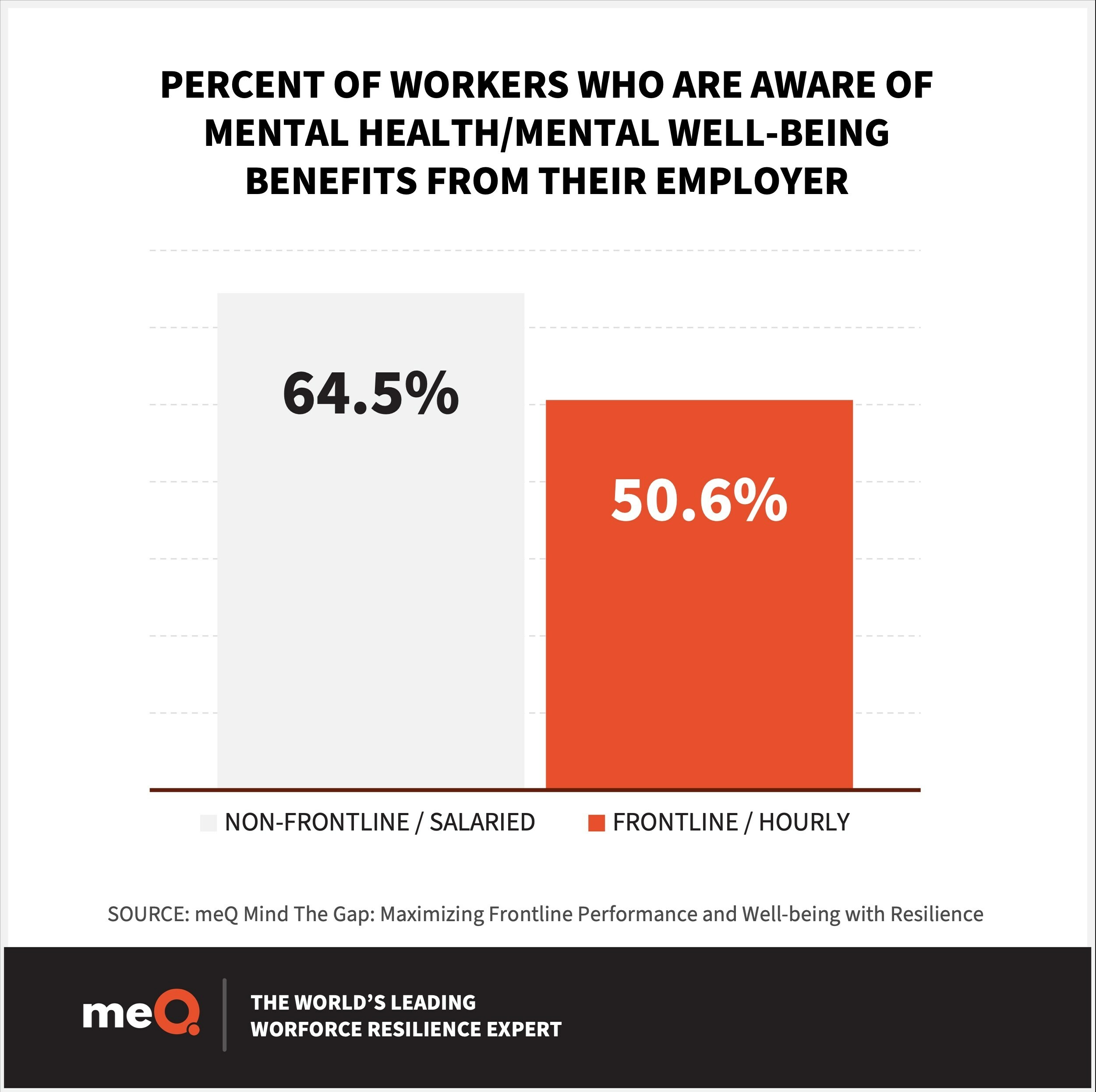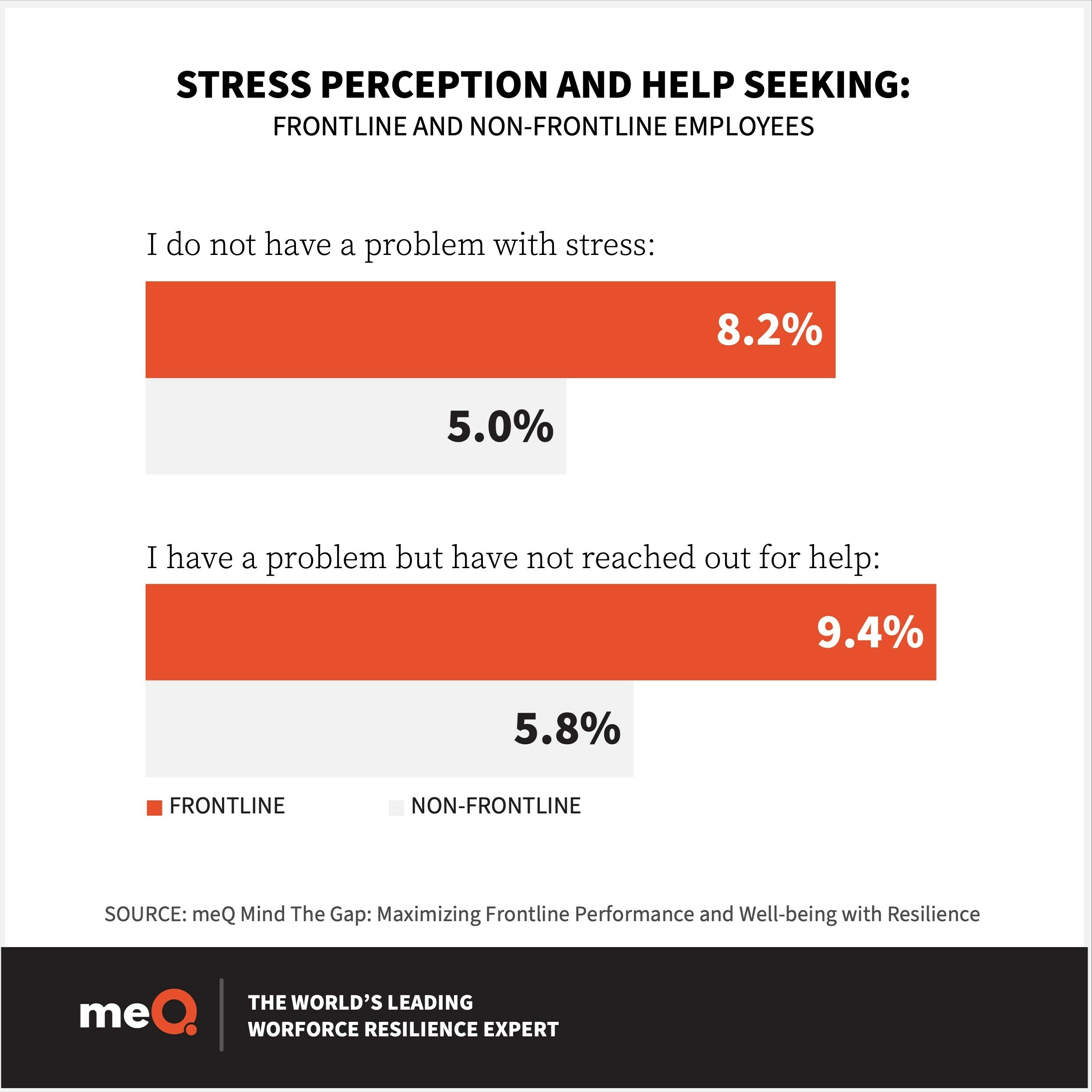Frontline Workers Have Greater Mental Health Needs, Yet Are Less Likely to Seek Help, Study Finds
The meQuilibrium study highlights a significant mental health crisis among frontline workers, revealing they face higher rates of anxiety, depression, and stress compared to their non-frontline counterparts. Despite the greater need for support, these workers are less likely to be aware of or utilize employer-provided mental well-being benefits. Frontline workers’ resilience improves more significantly than that of non-frontline workers, yet there’s a substantial gap in seeking help and benefit awareness. The research underscores the necessity for employers to enhance outreach and education about mental well-being resources, particularly for frontline staff in critical sectors such as healthcare, transportation, manufacturing, and hospitality.
Frontline workers shoulder greater burdens and are often unaware of well-being benefits, says meQuilibrium
BOSTON, Feb. 8, 2024 – Despite having more demanding roles tied to a higher degree of stress, frontline workers are less aware of employer mental wellbeing benefits, more likely to say they do not have a problem, and–even when they acknowledge a problem–are less likely to reach out for help than their non-frontline colleagues, according to a new meQuilibrium (meQ) study of frontline worker mental well-being released today. The study of 1,183 US-based workers revealed that rates of anxiety and depression among frontline workers are 33% and 61% higher, respectively, and when facing high stress, they are 30% less likely to seek out professional assistance, compared to their non-frontline counterparts.
 Frontline workers are often unaware of well-being benefits, says new meQuilibrium study.
Frontline workers are often unaware of well-being benefits, says new meQuilibrium study.

Frontline workers have greater mental health needs, yet are less likely to seek help, meQuilibrium study finds.
Frontline Workers Hesitate to Admit They Need Support
Despite grappling with more demanding roles and the associated impacts on mental well-being, frontline staff are not always open to support. They are 64% more likely than non-frontline peers to state that they do not have an issue with stress. Among those who recognize they have a problem, frontline employees are 62% more likely than non-frontline staff to say they have not sought help.
meQ’s research confirms a significant knowledge gap between frontline and non-frontline employees regarding employer well-being benefit offerings. Awareness of relevant employer-provided benefits was 22% lower among frontline staff compared to non-frontline staff. This gap was most pronounced among younger employees where research suggests the need is highest. Three-quarters (73%) of non-frontline Gen Z staff report feeling well-informed about available mental well-being benefits and less than half (43%) of frontline workers are aware of relevant benefits.
“Given both the elevated risk factors and participation obstacles frontline employees face, organizations reliant on these essential workers must prioritize awareness and access to needed benefits across this vulnerable population,” explains Dr. Smith. “Using mental well-being benefits to seek professional help should not be a move of last resort only associated with times of crisis. Unfortunately, the first line response to troublesome levels of stress, anxiety or burnout among frontline workers is to take time off from the job – which they do only reluctantly as it represents a decrease in pay.”
“It’s clear that frontline workers shoulder greater burdens from highly demanding roles yet are less likely to seek support,” said Dr. Smith. “Employers relying on these essential employees have a vested interest in closing this gap through proactive outreach and education to improve benefit awareness and utilization around mental well-being. Given the powerful connection between mental well-being and performance, closing this knowledge gap can lead to a healthier, more productive workforce, especially among frontline workers across industries like transportation, healthcare, manufacturing, and hospitality.”
SOURCE meQuilibrium
